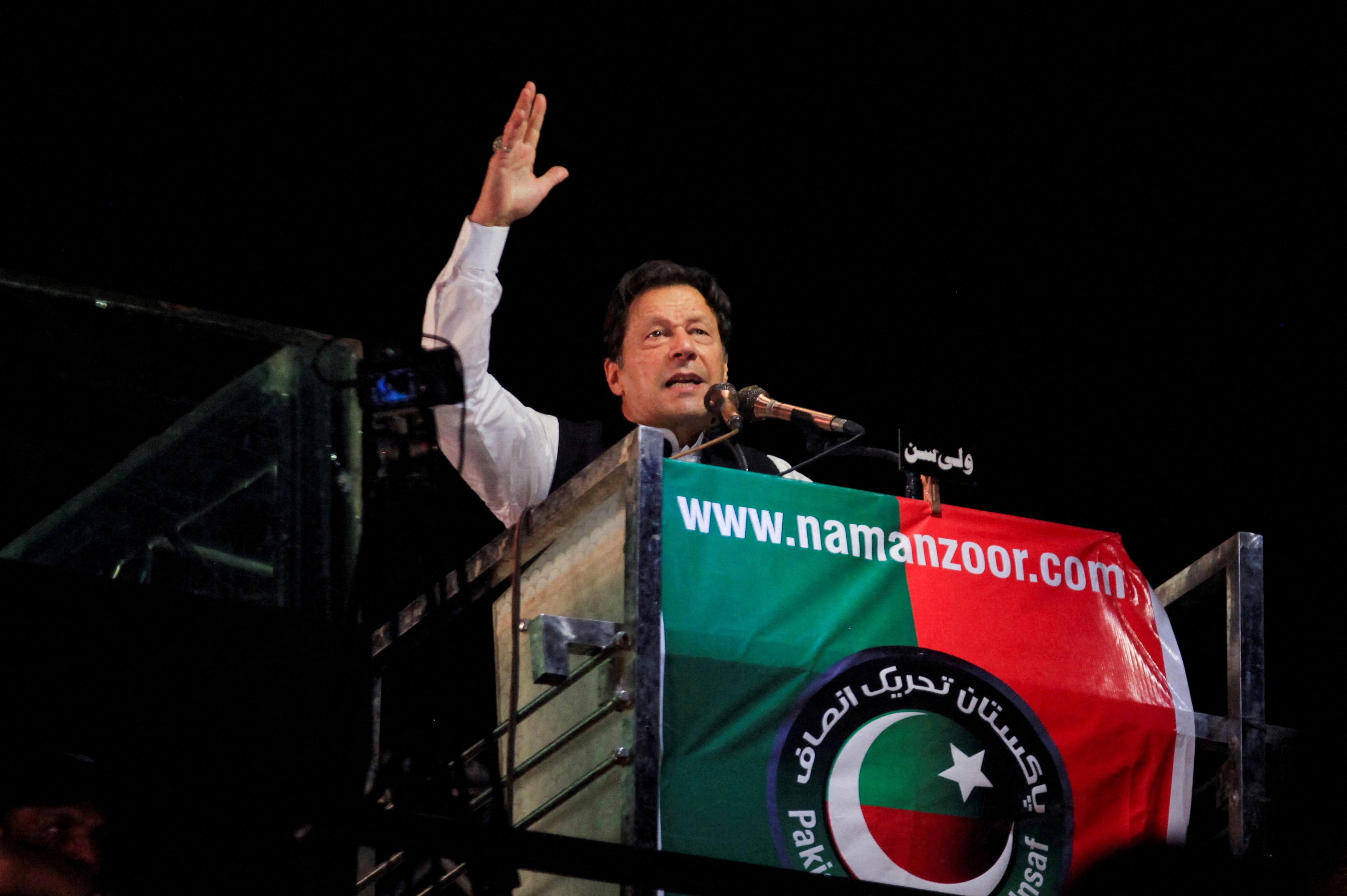On Thursday, former PM Imran Khan was shot and injured in the leg during a rally in Wazirabad, a city in eastern Punjab province. The shooter, identified as Naveed Mohammad Bashir, was interrogated by police. He was reportedly following Khan’s convoy and intended to kill him. "Imran Khan was misleading the people, and I couldn’t take it anymore. My objective was to kill him, and just him," he said. Eight other leaders of Khan's party were also injured. As we wrote about recently, political long marches in Pakistan rarely end well — and this time was no different. Soon after Khan kicked off his march to demand a snap election that he thinks will return him to power, the head of Pakistan's shadowy ISI intelligence services warned in a rare press conference that there could be violence. So, what happens now? It really depends on how soon the ousted former PM recovers from his injuries and whether the military — once again — steps in to restore order. There's no love lost between Khan and the army, but it's the men in uniform who — directly or indirectly — call all the shots in Pakistan. Still, as GZERO's own Waj Khan tweets, the army-backed government has two options now: placate Khan by agreeing to hold an early election or shut it all down if the violence gets out of hand.
☰
More from GZERO Media
- YouTube
La crisis... en MÚSICA! 🎤🇻🇪 Trump, Maduro, Xi, y Putin nunca sonaron mejor // never sounded better! #puppetregime
Graphic Truth: Turkey is cheaper, but inflation still gobbles
November 26, 2025
Eileen Zhang
US President Donald Trump pardons a turkey at the annual White House Thanksgiving Turkey Pardon in the Rose Garden in Washington, D.C., USA, on Nov. 25, 2025.
Andrew Leyden/NurPhoto
Although not all of our global readers celebrate Thanksgiving, it’s still good to remind ourselves that while the world offers plenty of fodder for doomscrolling and despair, there are still lots of things to be grateful for too.
Russian President Vladimir Putin welcomes US envoy Steve Witkoff during a meeting in Moscow, Russia, on April 25, 2025.
Sputnik/Kristina Kormilitsyna/Pool via REUTERS
Palestinians walk in the rain at a makeshift camp in Gaza City, on Nov. 25, 2025.
Majdi Fathi/NurPhoto
Hard Numbers: France’s Bardella would win an election today, Trump’s support among Latinos falls, Fox hunts for a seat in the Bahamas, and Hitler returns
November 25, 2025
Marine Le Pen, French member of parliament and parliamentary leader of the far-right National Rally (Rassemblement National - RN) party and Jordan Bardella, president of the French far-right National Rally (Rassemblement National - RN) party and member of the European Parliament, gesture during an RN political rally in Bordeaux, France, September 14, 2025.
REUTERS/Stephane Mahe
Army Chief Asim Munir holds a microphone during his visit at the Tilla Field Firing Ranges (TFFR) to witness the Exercise Hammer Strike, a high-intensity field training exercise conducted by the Pakistan Army's Mangla Strike Corps, in Mangla, Pakistan, on May 1, 2025.
Inter-Services Public Relations (ISPR)/Handout via REUTERS
Field Marshal Asim Munir, the country’s de facto leader, consolidated his power after the National Assembly rammed through a controversial constitutional amendment this month that grants him lifelong immunity from any legal prosecution.
What We’re Watching: Russia and Ukraine negotiations continue, Trump and Xi make a springtime date, Sudan’s rebels declare unilateral ceasefire
November 25, 2025
Ukraine's President Volodymyr Zelenskiy and U.S. Army Secretary Daniel Driscoll attend a meeting, amid Russia's attack on Ukraine, in Kyiv, Ukraine, November 20, 2025.
Ukrainian Presidential Press Service/Handout via REUTERS
© 2025 GZERO Media. All Rights Reserved | A Eurasia Group media company.
